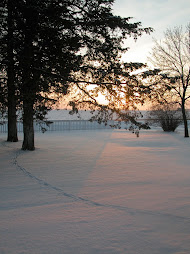There’s a saying that goes: change, or die. That’s harsh counsel even if it’s physiologically accurate.
Me? I like change. One of the benefits of having raised children into adulthood is that I’ve seen firsthand how humans, as we age, pass through a series of sequential developmental stages. Call it growth if you like. Some of these growing phases, the physical ones, last a year or more. The emotional ones pass more quickly, like the phases of the moon.
When you are able to take the long view of a lifespan (only visible from its far end), it is much easier to see change for what it is – an opportunity to become someone new – someone better. It’s nearly impossible to see or understand this when you’re up to your elbows in the emotionally challenging processes of change. There’s a saying for this too: not seeing the forest for the trees.
I was once acquainted with a woman who believed that, as we age, we want less uncertainty in our lives. The more choices life presents us, the more change taunts us. Her goal: stability. Her ideal: stability. As friends, she and I were incompatible.
I believe stability is a myth. The only certainty in life, death and taxes notwithstanding, is change. The sooner we get used to the idea of change, the sooner we can ride its crest with the confidence of a teenage surfer. It’s not easy, though, and the hardest part isn’t venturing down an unfamiliar street in the dark but enduring the moment that comes just before we step into the night air.
The trouble with change isn’t that it brings freshness and a new perspective; it’s that change involves saying goodbye to those things and people who inject joy into an experience, which soon will be examinable only in retrospect. And there’s the rub. Change signals an ending. This is an obvious consequence of transition, yet it isn’t inevitable. Participants in change must work hard, real hard, to preserve what’s important in their life; fortunately, people drawn to change find such challenges energizing.
Subscribe to:
Post Comments (Atom)






No comments:
Post a Comment